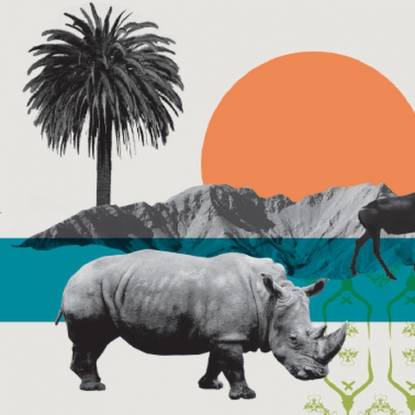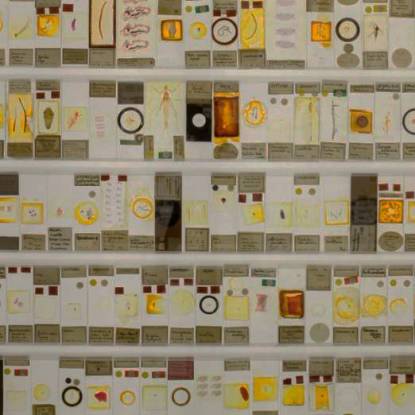UCL Takeover: An Extension of the Eye: The Impact of Surveillance Technologies - a report by Oliver Patel
This week UCL Culture News features a takeover by Oliver Patel, Manager of the UCL European Institute and Research Assistant for UCL Grand Challenges. Oliver holds an MSc in Philosophy and Public Policy from LSE and a BA in Politics and East European Studies from UCL.
Over the next three articles, Oliver will be reflecting on on our Transformative Technologies festival which happened back in June. The programme of events was fuelled by UCL research exploring the power of technology, and its potential to radically reshape the world we live in. So let's dive in and see what he found!
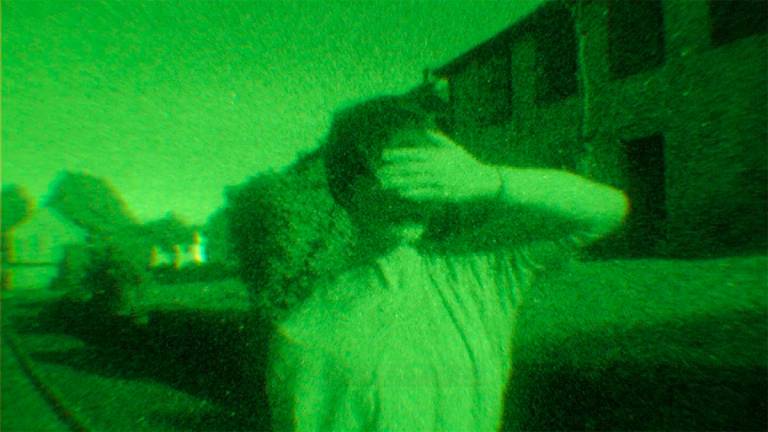
Close Protection by Graham Gussin
The device you are reading this on knows everything about you: everywhere you go, everyone you’ve loved and everything you want to do. By extension, a whole host of organisations and individuals also have access to this information. In the digital age, privacy is ostensibly non-existent; a relic of the past. The question is, do you care? If you did, then you probably wouldn’t be using this device. Or maybe you do care, and you’ve changed your behaviour accordingly. These days, everyone seems to know how little privacy they have. But does it change the way they act? Does it change how they view themselves and those around them? Does it change who they are? These are the questions which UCL Slade artist Graham Gussin explores in his piece: Close Protection. This piece was the focal point of one of the most thought-provoking events in the Transformative Technologies Festival - An Extension of the Eye: The Impact of Surveillance Technologies.
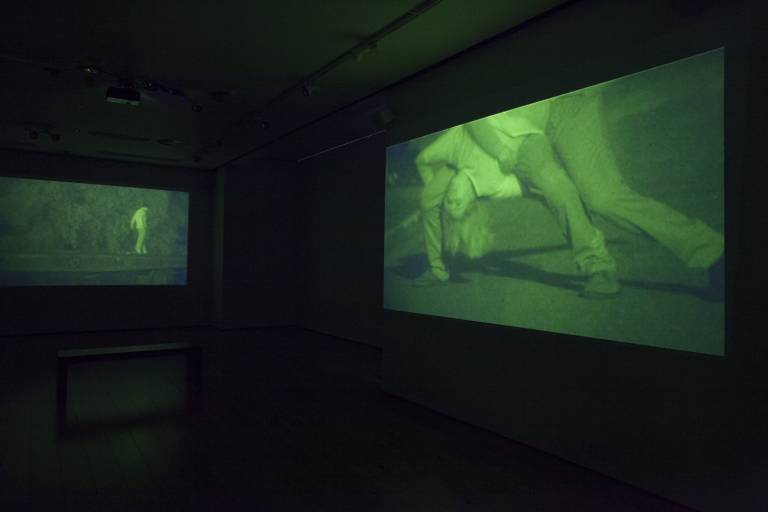
This intriguing event, which took place in the grand surroundings of UCL’s Art Museum, displayed Gussin’s piece throughout the day, enabling students, staff and other passers-by to engage with this excellent piece of work as they pleased. Close Protection is a three-screen video work which shows dancers elegantly gliding across a somewhat surreal and eerie external environment - a ‘false village’ in a UK army base deep in the South of England. (The village was built for training purposes, to replicate combat environments in Afghanistan.) The entire piece was filmed at night, in pitch black darkness, using sophisticated military grade night vision cameras. Gussin said that he was interested in seeing whether the fact that it was filmed in the darkness, with night vision cameras, impacted on the way in which the dancers performed.
The result was a visually stunning and fascinating work of art, replete with absorbing and thoughtful contrast, from the graininess of the video and the rugged army village, to the precision of the dancers and the elegance of their movement. For those of us lucky enough to attend the evening event, we were treated to an intimate discussion with the artist himself. Gussin first spoke about the work; his ideas behind it, how it was made and what it means to him. All the while, the work was playing in the background. To be precise, we sat with the artist around a large table, with the three screens surrounding us. It is not often that one is able to observe a work of art and ask the artist questions about it simultaneously. This was a real treat, seized upon by the eager and engaged audience.
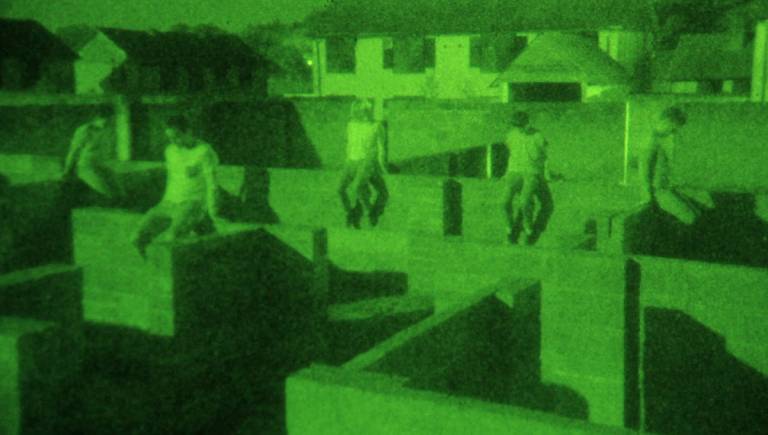
Close Protection by Graham Gussin
Gussin explained that he wanted to explore whether the dancers behaved as if they were being watched, and whether they danced differently because it was filmed in darkness. He also wanted to demonstrate that such surveillance technologies represent an extension of the human body, as they enable us to see in the dark. Although Gussin wasn’t making any explicit arguments about the merits or dangers associated with surveillance technologies, he wanted the piece to stimulate discussion on the issue, which it certainly did. The participants discussed a range of privacy-related issues with the artist, such as how surveillance technologies are changing the way the way we act and think, and whether we are increasingly willing to sacrifice privacy for convenience and other benefits. An Extension of the Eye: The Impact of Surveillance Technologies was an extremely successful event. As well as taking in a fascinating work of art and engaging with the artist, participants left with a clearer sense of the ways in which surveillance technologies are encroaching upon our privacy and changing the world.
All image credits: The artist and Art South Collaborations
 Close
Close


